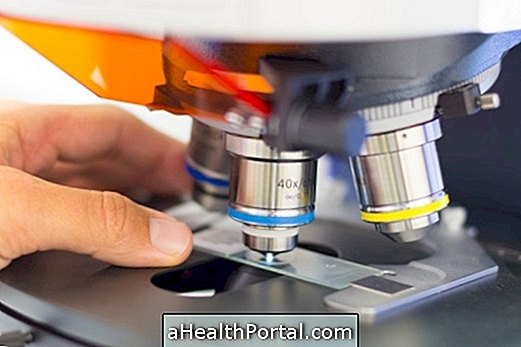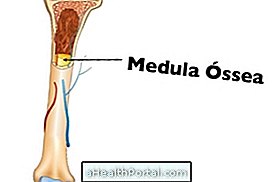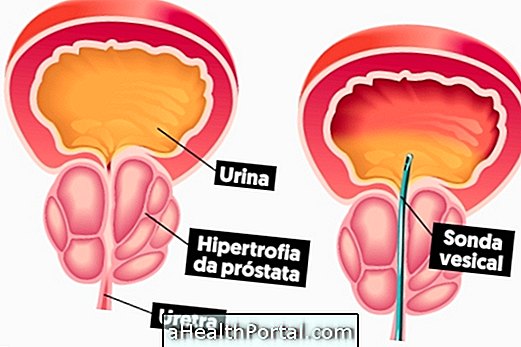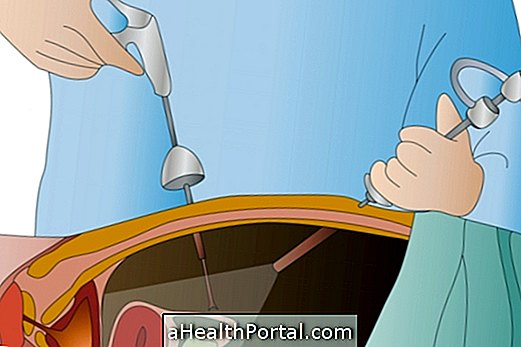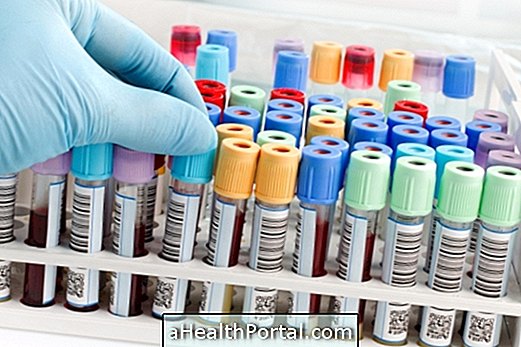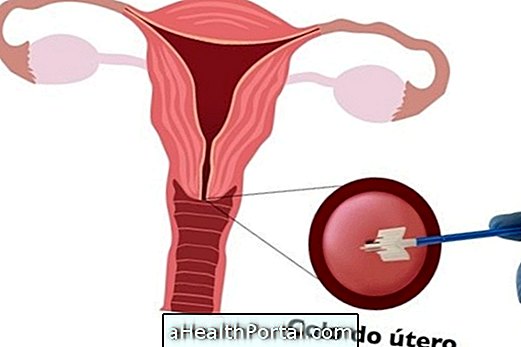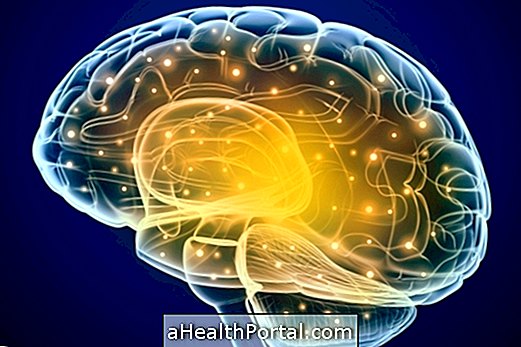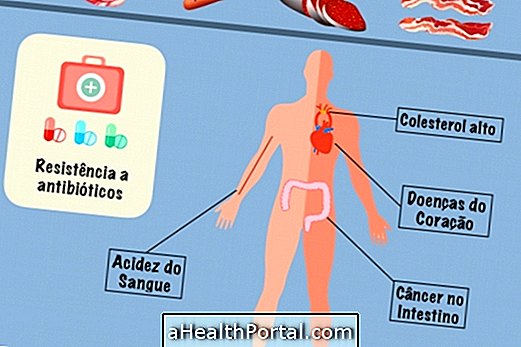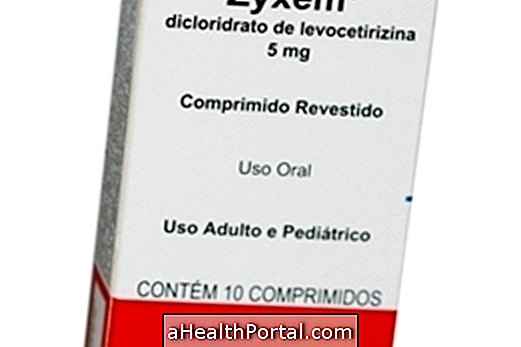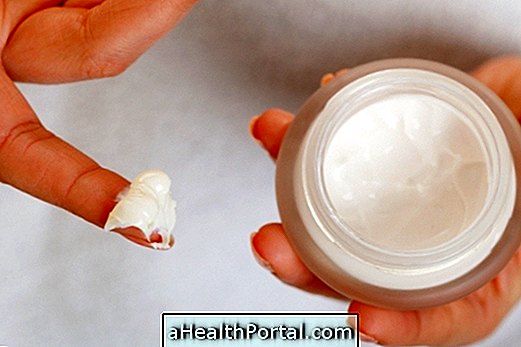The TSH test is used to evaluate thyroid function and is usually ordered by the general practitioner or endocrinologist to assess whether the thyroid gland is functioning properly, and in the case of hypothyroidism, hyperthyroidism, or following a thyroid differentiation follicular or papillary, for example.
Thyroid stimulating hormone (TSH) is produced by the pituitary gland and is intended to stimulate the thyroid to produce T3 and T4 hormones. When TSH levels are increased in blood, it means that the T3 and T4 concentration in the blood is low. When in low concentrations, T3 and T4 are present in high concentrations in the blood. See which tests are essential for thyroid screening.
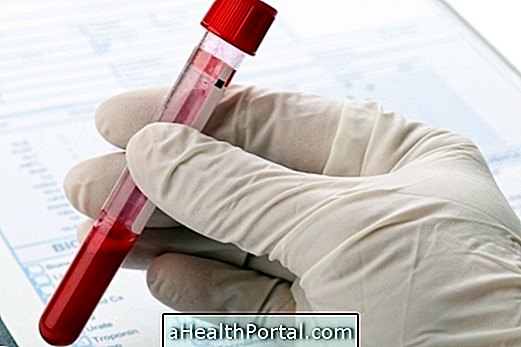
Reference values
The reference values for TSH vary according to the age of the person and the laboratory in which the test is performed, usually:
| Age | Values |
| 1st week of life | 15 (μUI / mL) |
| 2nd week up to 11 months | 0.8 - 6.3 (μUI / mL) |
| 1 to 6 years | 0.9 - 6.5 (μUI / mL) |
| 7 to 17 years | 0.3 - 4.2 (μUI / mL) |
| + 18 years | 0.3 - 4.0 (μUI / mL) |
| In pregnancy | |
| 1st quarter | 0.1-2.5 mIU / L (μUI / mL) |
| 2nd quarter | 0.2-3.0 mIU / L (μUI / mL) |
| 3rd quarter | 0.3-3.0 mIU / L (μUI / mL) |
How is the TSH test done?
The TSH test is made from a small blood sample, which must be collected fasting for at least 4 hours. The collected blood is sent to the laboratory for analysis.
The best time to take this test is in the morning, as the concentration of TSH in your blood varies throughout the day. Before taking the test, it is important to indicate the use of some medicine, especially thyroid remedies, such as Levothyroxine, as it may interfere with the test result.
What is ultra sensitive TSH
The ultra sensitive TSH test is a more advanced diagnostic method that can detect minimal amounts of TSH in the blood that the normal test would not be able to identify. The diagnostic method used in laboratories is very sensitive and specific, being the ultra sensitive TSH test normally used in the routine.

When the TSH test is ordered
The TSH test can be ordered in the case of healthy people, only to evaluate thyroid function, and also in case of hyperthyroidism, hypothyroidism, Hashimoto's thyroiditis, thyroid enlargement, benign or malignant thyroid nodule during pregnancy, and also to monitor the dosage of thyroid replacement drugs in the event of withdrawal of the thyroid gland.
Usually this test is ordered for all people from the age of 40, even if there are no cases of thyroid disease in the family.
What can the results mean?
High TSH
- Hypothyroidism: Most of the time high TSH indicates that the thyroid is not producing enough hormone, so the pituitary gland tries to compensate for this by raising TSH levels in the blood so the thyroid can function properly. One of the characteristics of hypothyroidism is high TSH and low T4, and may indicate subclinical hypothyroidism when TSH is high, but T4 is within normal range. Know what the T4 is.
- Medications: The use of low-dose anti-hypothyroid drugs or other medicines, such as Propranolol, Furosemide, Lithium, and iodine medicines, may increase the concentration of TSH in the blood.
- Tumor in the pituitary gland may also cause increased TSH.
Symptoms related to high TSH are typical of hypothyroidism, such as tiredness, weight gain, constipation, cold feeling, increased facial hair, difficulty concentrating, dry skin, brittle hair and brittle nails. Learn more about hypothyroidism.
Low TSH
- Hyperthyroidism: Low TSH usually indicates that the thyroid is producing T3 and T4 excessively, increasing these values, so the pituitary gland decreases TSH release to try to regulate thyroid function. Understand what T3 is.
- Drug Uses: When the dose of the drug against hypothyroidism is too high, TSH levels are below ideal. Other medications that can cause low TSH are: ASA, corticosteroids, dopaminergic agonists, fenclofenac, heparin, metformin, nifedipine or pyridoxine, for example.
- Tumor in the pituitary gland can also lead to low TSH.
Symptoms related to low TSH are typical of hyperthyroidism, such as agitation, heart palpitation, insomnia, weight loss, nervousness, tremors, and decreased muscle mass. In this case, TSH is normal, and T4 is high, but if T4 is still between 01 and 04 μIU / mL, this may indicate subclinical hyperthyroidism. Low TSH and low T4, may indicate anorexia nervosa, for example, but in any case the diagnosis is given by the doctor who requested the examination. Learn more about treating hyperthyroidism.
